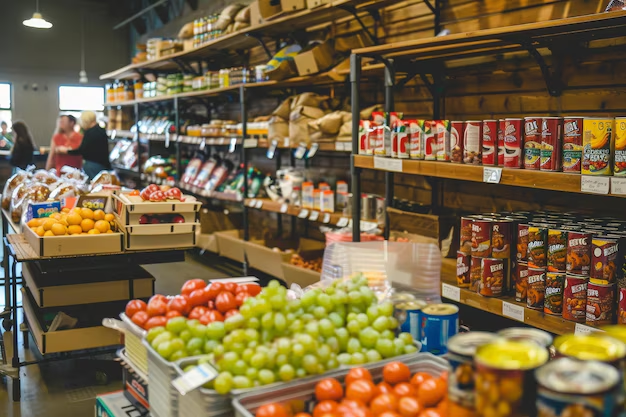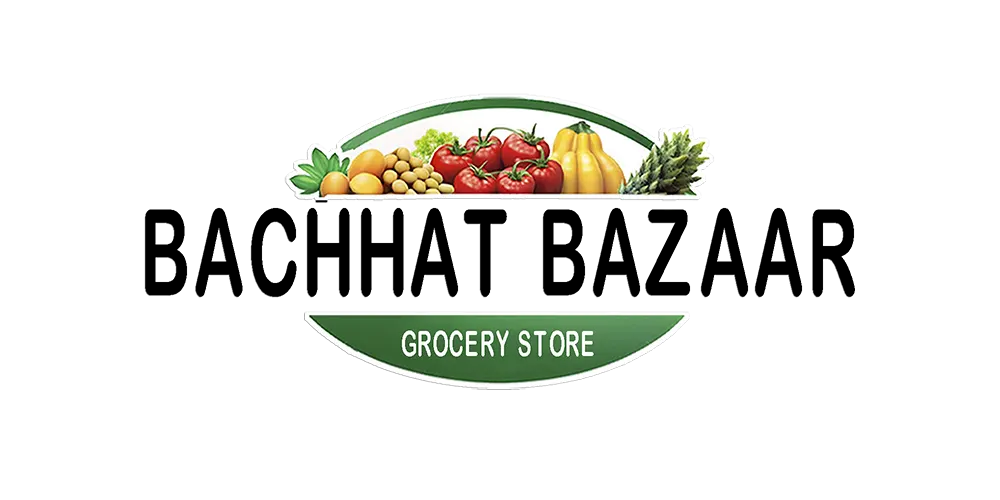
Reducing household waste is not only beneficial for the environment but also helps you live a more sustainable and cost-effective lifestyle. One of the most effective ways to minimize waste is through bulk shopping. By buying in larger quantities, you reduce the need for excessive packaging, decrease transportation emissions, and often lower costs. This eco-friendly approach aligns with the growing movement toward zero-waste living, making it a practical choice for environmentally-conscious consumers.
In this blog, we’ll explore some key eco-friendly bulk shopping tips to help reduce household waste, including how to prepare, what products to buy, and how to store your bulk purchases efficiently.
Why Choose Bulk Shopping?
Bulk shopping is a powerful tool in waste reduction because it allows consumers to minimize packaging waste, decrease the carbon footprint from transportation, and often results in better financial savings. When you buy in bulk, you can bring your own reusable containers, eliminating the need for single-use plastics or excessive packaging. Bulk buying also reduces the frequency of trips to the store, helping to cut down on fuel consumption.
Moreover, many bulk products are sold in simple packaging, such as paper or biodegradable materials, which further contributes to an eco-friendly shopping experience.
1. Start with a Plan
Before diving into bulk shopping, it’s important to create a plan. Consider the following:
- Assess your household needs: Look at the items you use most frequently. Staples like grains, rice, beans, pasta, flour, and nuts are often great products to buy in bulk.
- Choose eco-friendly stores: Many grocery stores and co-ops offer bulk buying options, especially those focused on sustainability. Research stores in your area that allow customers to bring their own containers or provide reusable packaging.
- Bring your own containers: A crucial part of bulk shopping is having the right containers on hand. Reusable glass jars, cloth bags, and sturdy bins are perfect for storing bulk items. Make sure to weigh your containers before filling them to avoid being charged for the extra weight.
2. Select Eco-Friendly Products
Not all products are suited for bulk purchases, but many eco-friendly options are available. Consider buying the following items in bulk to reduce household waste:
- Dry Goods: Grains, legumes, pasta, nuts, and seeds are excellent choices for bulk buying. They have a long shelf life and can be stored easily in airtight containers.
- Cleaning Products: Many stores offer bulk cleaning supplies such as detergents, dish soap, and multipurpose cleaners. By refilling reusable bottles, you eliminate the need for single-use plastic containers.
- Personal Care Items: Items like shampoo, conditioner, soap, and lotion can also be purchased in bulk. Some stores allow you to refill bottles directly, reducing plastic waste from packaging.
- Spices and Herbs: Small plastic containers often accompany spices, and these can pile up in your kitchen. Buying herbs and spices in bulk lets you replenish your stock without unnecessary packaging.
- Pet Food: Many pet owners may not realize that bulk pet food is an option. Purchasing pet food in larger quantities not only saves money but also cuts down on the use of small plastic bags.
3. Store Bulk Items Properly
To make sure your bulk purchases stay fresh and usable for longer, it’s important to store them correctly. Proper storage minimizes waste and reduces the need for replacements. Here are some tips for effective storage:
- Use Airtight Containers: Invest in glass jars or BPA-free plastic containers to keep food items fresh. These containers prevent pests, moisture, and spoilage from ruining your products.
- Label Your Containers: Once you fill a container with a bulk product, label it with the purchase date and contents. This helps you stay organized and use items before they expire.
- Store in a Cool, Dry Place: Keep bulk products like grains, flours, and spices in a cool, dry pantry. Humidity can lead to mold or spoilage, while excessive heat can reduce freshness.
- Use Refillable Storage for Liquids: Bulk liquids, such as cleaning supplies or personal care items, should be stored in reusable bottles with secure lids. Make sure to rinse and sanitize containers before each refill to maintain hygiene.
4. Avoid Overbuying
One of the challenges of bulk shopping is the temptation to buy too much. While it may seem cost-effective, buying more than you can use can lead to food waste, negating the benefits of reducing packaging waste. Here’s how to avoid overbuying:
- Plan Your Meals: Bulk shopping pairs well with meal planning. Decide what you’ll cook for the week and buy only what you need for those meals.
- Buy What You Can Store: Ensure you have enough space in your pantry, fridge, or freezer to store bulk items properly. Overcrowding storage areas can lead to spoilage.
- Start Small: If you’re new to bulk shopping, start with a few essential items. Gradually add more products to your bulk-buying list as you get accustomed to the process.
5. Compost Your Food Scraps
Even with bulk shopping, some food waste is inevitable. Instead of throwing away peels, scraps, and food that goes bad, consider composting. Composting reduces the amount of waste sent to landfills and creates nutrient-rich soil for your garden. This is a great way to close the loop in your eco-friendly shopping journey.
6. Get Involved in a Bulk-Buying Community
Joining a bulk-buying community or co-op is another excellent way to reduce waste. By pooling resources with neighbors or friends, you can purchase larger quantities and divide them up amongst the group. Not only does this reduce packaging waste, but it also fosters a sense of community and helps spread the zero-waste lifestyle.
Conclusion
Eco-friendly bulk shopping is a simple yet impactful way to reduce household waste, save money, and lead a more sustainable lifestyle. With the right planning, storage, and product choices, you can significantly minimize your environmental footprint while still enjoying the convenience and affordability of bulk purchases. Remember, the key to successful bulk shopping is preparation—plan your meals, bring your containers, and buy only what you need.
By integrating these eco-friendly bulk shopping tips into your routine, you’ll contribute to a cleaner, greener future while reducing your household waste. Start today and see the difference it makes for both your wallet and the environment!

